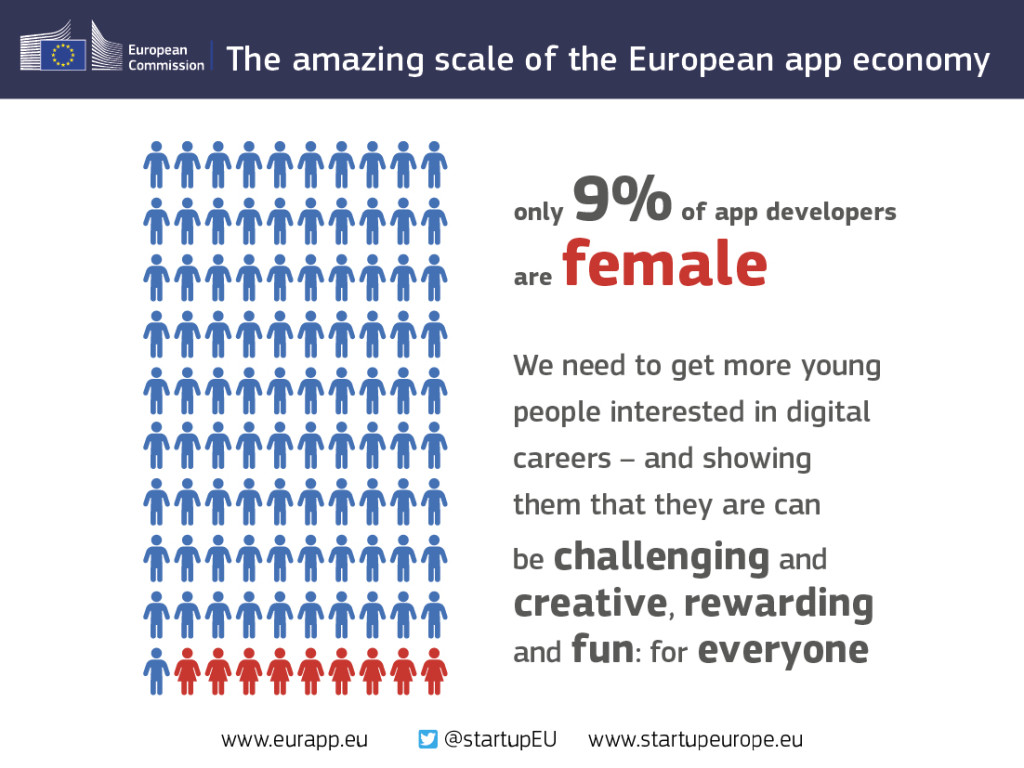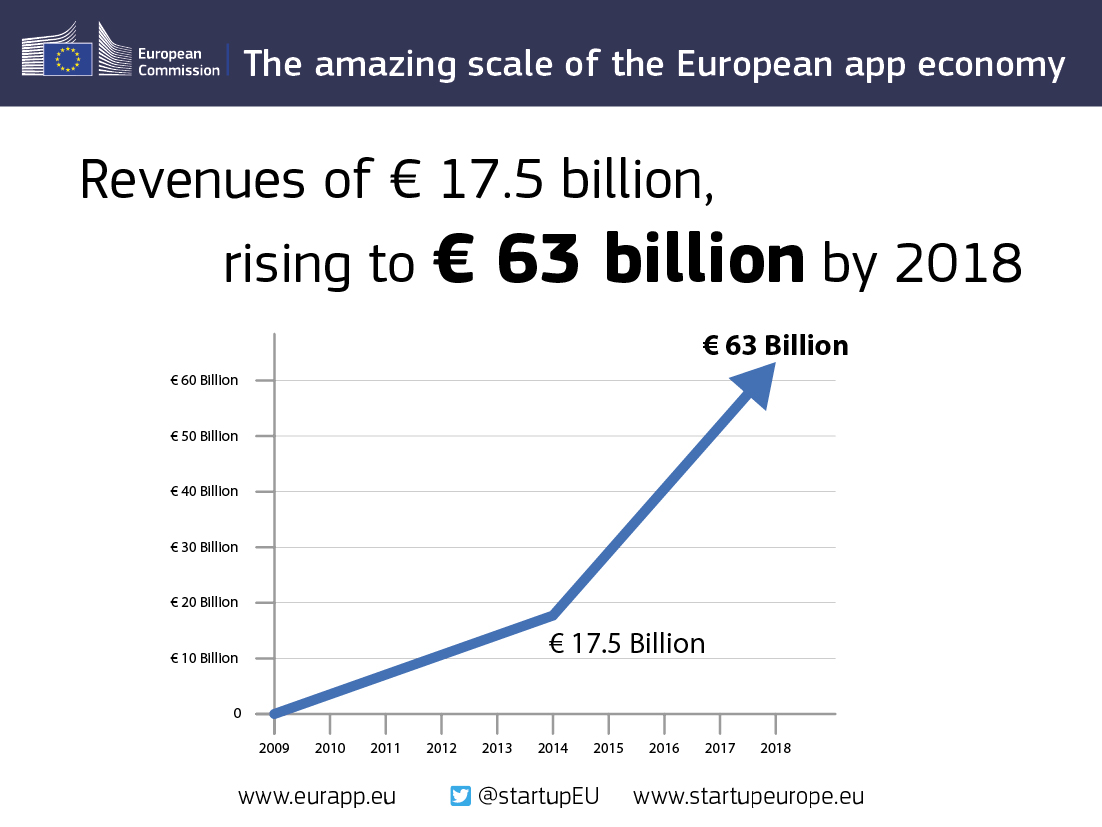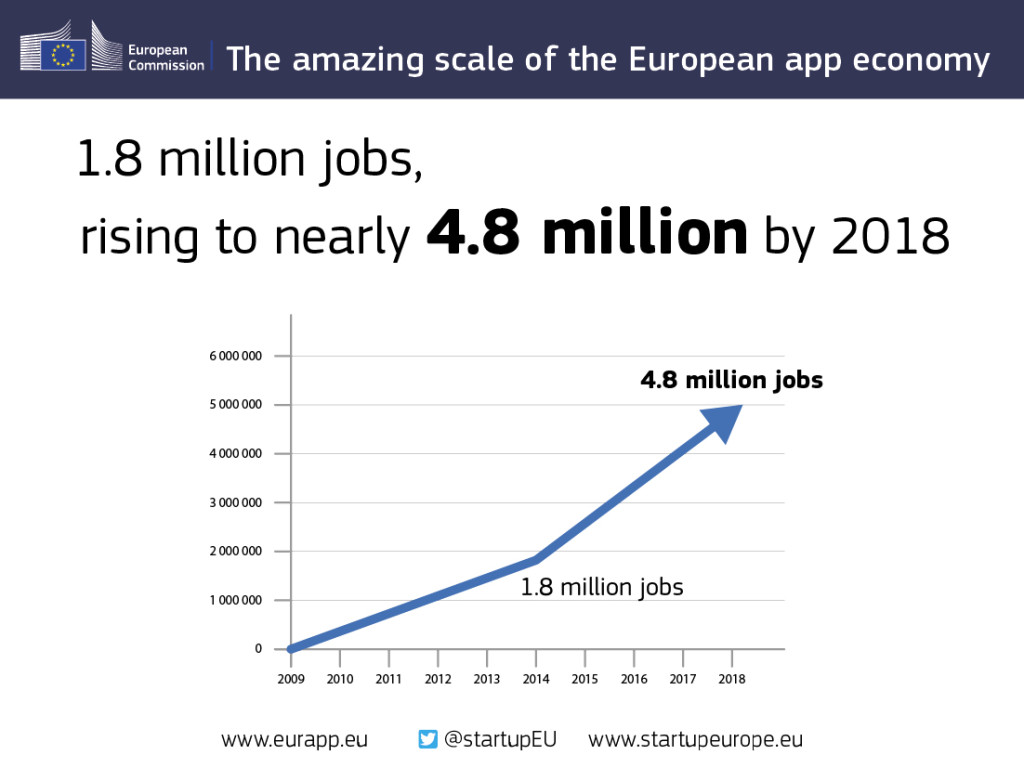The EU’s app sector could employ 4.8 million people and contribute €63 billion to the EU economy by 2018, according to a report presented in Brussels today. The study, carried out by GIGAOM for the European Commission, shows that Europe’s app developers are up to the challenge of taking the global lead. Currently, EU and North American developers generate the same levels (42% each) of app revenues in crucial EU and US markets. Although the future is bright, developers have raised concerns about the skills gap, connectivity and fragmentation which could put the app boom at risk.
Today the app economy employs 1 million developers, and 800,000 people in marketing & support posts. This could rise to 2.7 million developers + 2.1 million support staff by 2018. EU buyers and advertisers spent €6.1 billion on apps in 2013, 30% of total global app spending, growing to €18.7 billion in 2018. Consumer spending combined with advertising and contract work could lead to €63 billion annual revenue for the app sector within five years.
Neelie Kroes, Vice-President of the European Commission, said: “In the face of increasing youth unemployment, these figures give me new hope. The app sector is one area of the digital economy where Europe can really lead. But we have to address concerns about connectivity and fragmentation – yet another reason to complete the telecom single market!”
The study shows that:
- EU games app developers lead the field: 28 EU leading companies created 40% of the top 100 grossing apps in the EU and US. Three of the top-five companies are Nordic games developers (1st King.com, 2nd, Supercell, 5th Rovio)with German, French, Spanish and UK app developers also finding success outside their native markets.
- Growing market, growing jobs: In 2013, developers earned €11.5 billion making apps for consumer goods, banking, media, retail and other clients. They can expect to earn up to €46 billion through contracts of this nature in 2018. The app boom is creating jobs, for example contract developers Golden Gekko (London/Barcelona) plans to grow its staff 40-50% next year and London-based Grapple Mobile was a 3-person firm three years ago, employs 120 now, and intends to double next year.
- Addressing the digital skills shortage: roughly 38% of independent and in-house developers said EU companies had difficulties competing with US salaries, 31% and 33% said that developer education was lagging, around 30% said startup developers lacked business expertise, and quarter of all surveyed said there were not enough developers. Worryingly only 9% of developers are female.
The Commission is tackling Europe’s digital skills crisis in a number of ways. Firstly, by partnering with industry and other organisations in the Grand Coalition for Digital Jobs. In parallel, by working with schools to bring digital skills right into the connected classroom. Finally, by supporting grassroots initiatives such as EU Code week, organised by Neelie Kroes’ young advisors. The first ever EU Code Week reached 10,000 people in 26 countries in November 2013. This year’s Code week will take place on 11-17 October 2014.
- Technical bottlenecks and fragmentation were also a cause for concern. Roughly a quarter of developers wanted to see 4G develop more quickly in Europe. Around 35% were frustrated by the lack of interoperability between platforms like Android, iOS, Facebook. A majority of developers complained of their de facto total dependence on platforms developed by American giants, with subsequent revenue impact.












